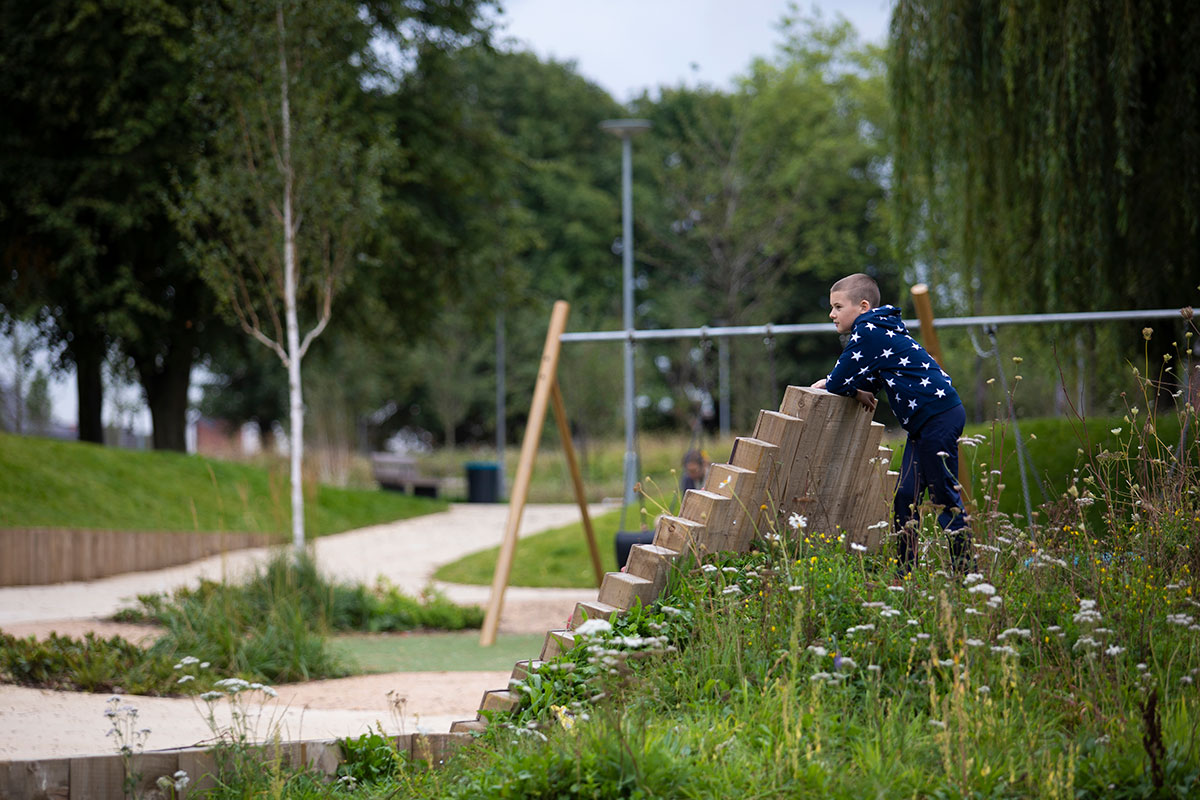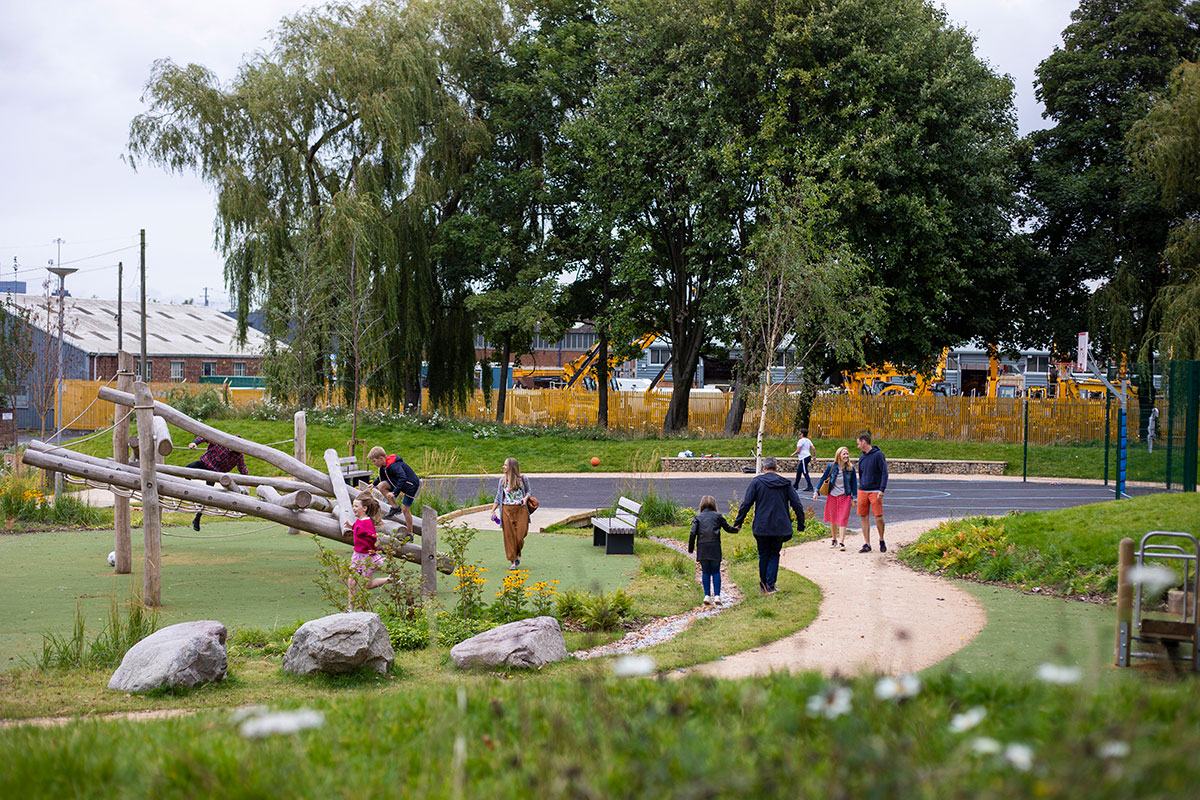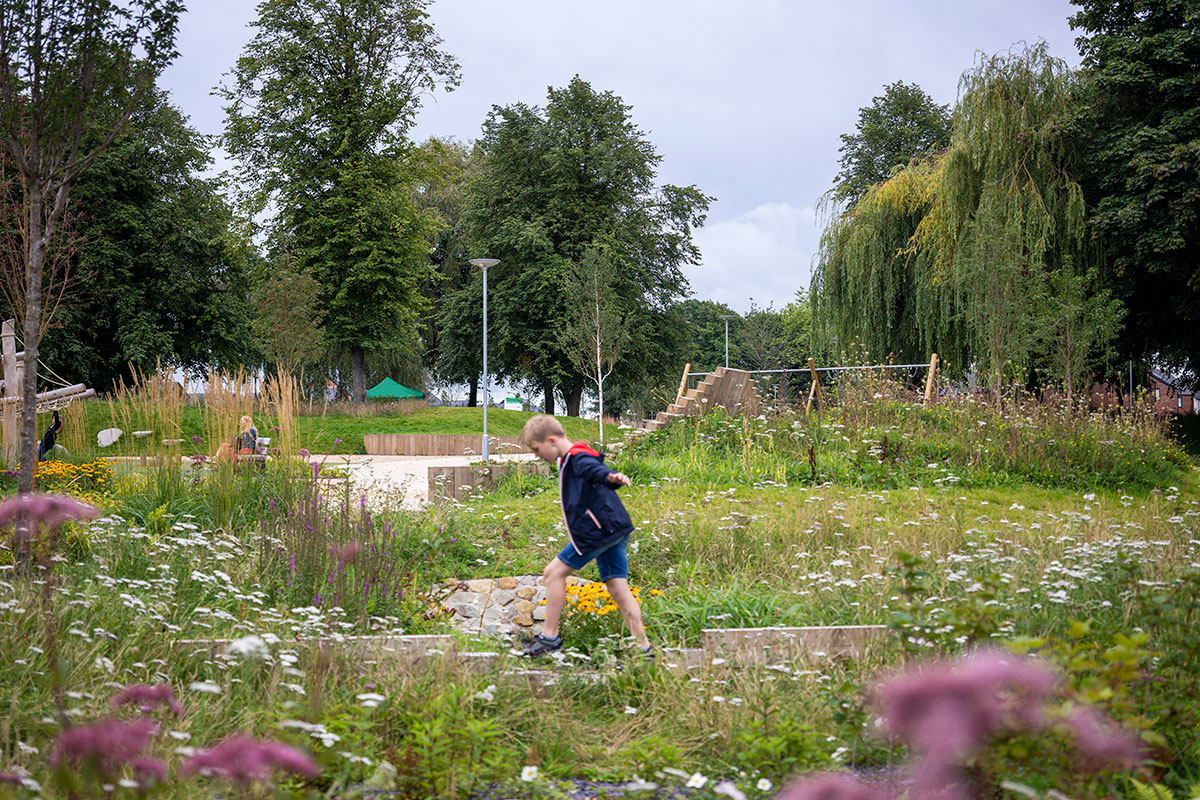#{Title}
#{Copy}
Our landscape architects, alongside engineering consultancy, Arup, have designed a new sustainable drainage park in Manchester which opened on 24 July. It is part of an innovative scheme to use nature-based solutions to combat the effects of climate change and reduce stormwater flooding.
The new park in West Gorton, commissioned by Manchester City Council, is the final piece in a £100m regeneration scheme of 500 new homes, new community facilities and school improvements. Unlike a typical park, the green space in West Gorton has been specifically designed to manage the flow of rainwater into a drainage system to help prevent flooding.
Paths and hard surfaces have been replaced with permeable paving to allow rainwater to percolate through the ground. Infiltration ponds will soak up water and any remaining will flow into sunken rain gardens, which have been planted with a range of biodiverse vegetation to mimic the area’s natural environment. During heavy storms, water that cannot be absorbed by soil and vegetation will be captured through a series of 'v' shaped channels and used to water the trees and plants.


The landscape design for the park seeks to promote social cohesion and wellbeing as well as environmental benefits to the city. The design incorporates three distinct areas; a woodland area filled with tree-lined paths and play features; a biodiverse meadow with picnic area and a community area for outdoor events. The aim is to encourage visitors to interact with nature and feel a strong sense of community.
This park is the first UK demonstrator project for the GrowGreen initiative, which is funded by the European Union’s 2020 Horizon programme. The initiative aims to show how green infrastructure can combat the effects of climate change by providing quantifiable evidence. The University of Manchester will monitor the storm water flows over the next five years to examine how effective the park is in reducing flooding and how people make use of the space. The data they gather will then be used to inform the design of other green spaces in flood prone areas across the EU.

Climate change and the need to plan for green infrastructure is playing an increasingly significant role in our approach to design. West Gorton Community Park has given us the opportunity to create enticing spaces that help us feel connected to others and support the environments we inhabit.
Jenny Ferguson Lead Landscape Architect

Heavy rainfall events are becoming more frequent and managing this excess water in our urban environments is increasingly challenging. Nature-based solutions such as this one offers a more attractive approach to storm water management, helping to improve the spaces where we live, work and play.
Patrick Swainson Project Engineer for Arup
